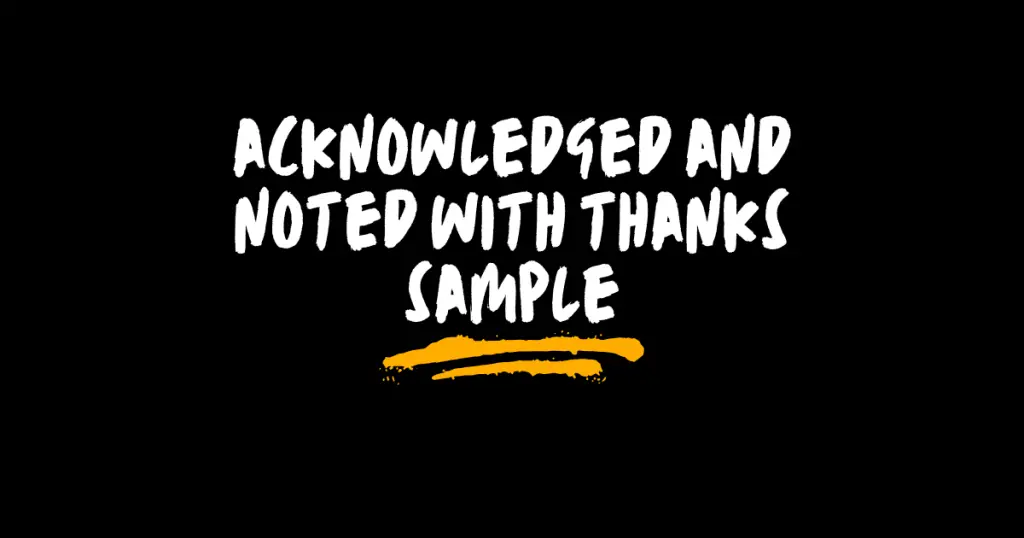In professional communication, precision and politeness go hand in hand. Phrases like “well noted” often serve as quick acknowledgments in emails or messages. But what if you want to add a touch of variety or professionalism to your responses? This guide dives deep into effective alternatives to “well noted,” ensuring you always strike the right tone in formal or professional settings.
Why Is “Well Noted” Important in Communication?

“Well noted” conveys acknowledgment of a message or instruction. It reflects attentiveness and understanding, which are crucial in maintaining professional relationships. However, overusing it can make your communication appear monotonous. Exploring alternatives enhances your linguistic repertoire and leaves a better impression.
Professional Alternatives to “Well Noted” in Emails
Here are polished ways to acknowledge a message professionally:
1. Acknowledged with Thanks
Example:
“Your email regarding the project deadline has been acknowledged with thanks.”
This phrase is formal and shows gratitude, making it perfect for client or managerial communication.
2. Understood and Actioned
Example:
“The guidelines you shared have been understood and will be actioned promptly.”
This is particularly useful when you need to confirm understanding and indicate the next steps.
3. Duly Noted
Example:
“Your feedback on the report is duly noted and appreciated.”
A succinct and formal acknowledgment, ideal for professional settings.
4. I’ve Taken Note of That
Example:
“I’ve taken note of the updates and will incorporate them accordingly.”
This phrase is conversational yet professional, suitable for team communication.
5. Message Received and Understood
Example:
“Your instructions are received and fully understood. I’ll proceed accordingly.”
Clear and concise, this works well in hierarchical communication.
Also Read: Ways to Say ‘Please Confirm Receipt of This Email’
Tips for Choosing the Right Phrase
- Know Your Audience: Use formal language for clients or superiors, but feel free to be conversational with colleagues.
- Consider the Context: Acknowledge instructions with actionable language (e.g., “Understood and Actioned”) but keep it simple for casual updates (e.g., “Noted, thank you”).
- Keep It Concise: Professional communication values brevity. Avoid overly elaborate phrases.
Other Creative Ways to Say “Well Noted”
- “Got it!” – Informal but effective in casual settings.
- “Appreciate the update.” – Adds a touch of gratitude.
- “I’ll keep that in mind.” – Useful for future-oriented tasks.
- “Thanks for bringing this to my attention.” – Highlights appreciation and attentiveness.
- “I’ll take care of it.” – Indicates readiness to act.
When to Avoid “Well Noted”
While “well noted” is a versatile phrase, avoid it in these situations:
- When Immediate Action Is Required: Use phrases like “Understood and will act on this immediately.”
- When More Detail Is Needed: Instead of “Noted,” confirm with questions or additional comments.
- When Seeking to Impress: Choose more polished alternatives like “Duly noted and appreciated.”
FAQs
What does “well noted” mean in emails?
“Well noted” means that you have acknowledged and understood the information provided. It is often used in professional correspondence to confirm receipt of instructions or details.
How can I say “well noted” politely?
Polite alternatives include:
- “Duly noted.”
- “Acknowledged with thanks.”
- “Message received and understood.”
Is “well noted” formal?
Yes, “well noted” is considered formal and is widely used in professional settings.
What are casual alternatives to “well noted”?
For informal communication, try:
- “Got it!”
- “Noted, thanks!”
- “Sure thing!”
Conclusion
Choosing the right phrase to acknowledge communication can significantly impact how you are perceived in professional settings. By diversifying your vocabulary beyond “well noted,” you can tailor your responses to suit the tone, context, and audience effectively. Whether in emails or meetings, these alternatives ensure your communication remains polished and impactful.
Which alternative do you plan to use in your next email? Let us know in the comments!